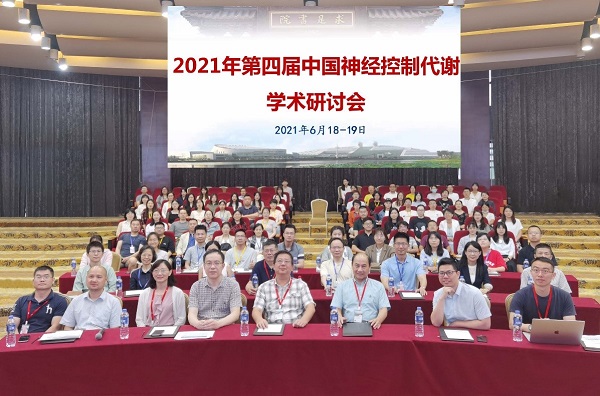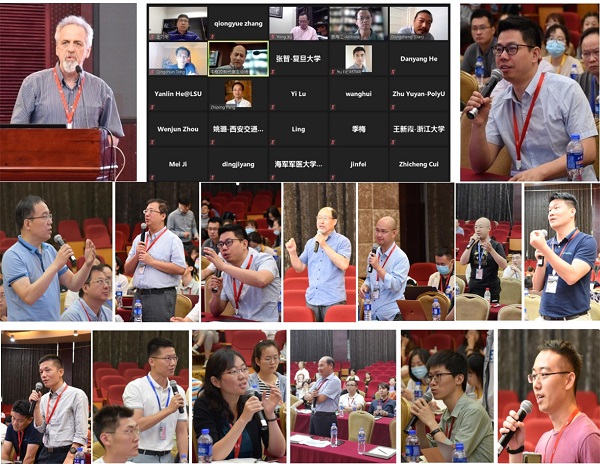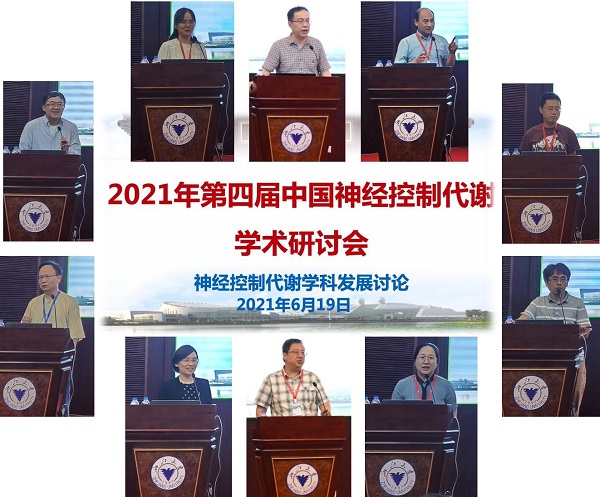Home> News
4th China Symposium on Nerve Control Metabolism successfully held
Updated: 2021-06-29

The 4th China Symposium on Neuro-Controlled Metabolism is successfully held from June 18 to 19 in Hangzhou city, East China’s Zhejiang province.
The 4th China Symposium on Neuro-Controlled Metabolism was successfully held from June 18 to 19 in Hangzhou city, East China’s Zhejiang province.
It was jointly held by the Metabolic Biology Academic Subgroup of the Biophysical Society of China (BSC), the School of Brain Science and Brain Medicine, Zhejiang University, and the Neurobiology Subgroup of the Zhejiang Society for Neuroscience.
BSC Deputy Secretary General Liu Tiemin and Deputy Dean of the School of Brain Science and Brain Medicine Zhou Yudong delivered opening speeches in which they expressed their hopes that multidisciplinary experts at home and abroad can cross-integrate, be in close contact, and closely follow the development of the times to serve the national strategy and enhance China’s international influence in the field of neuromodulation and metabolism.

Experts and scholars discuss academic issues at the symposium.
At the symposium, experts discussed “central nervous system nutrition sensing and energy balance regulation mechanisms”, “central nervous system regulating peripheral lipids and body temperature & cutting-edge technology”, and “the effect of hypothalamic glial cell immunity and neural stem cell development on metabolism”.
More than 40 domestic and foreign professionals, including Researcher Wu Qingfeng from the Institute of Genetics and Developmental Biology of the Chinese Academy of Sciences (CAS), Academician John Speakman from CAS’s Shenzhen Institute of Advanced Technology, Professor Cai Dongsheng from the Albert Einstein College of Medicine of Yeshiva University and Professor Xu Yong from Baylor College of Medicine, were invited to make academic reports.
About 150 experts and scholars attended the symposium offline and had active discussions with each other and with the participants who joined the meeting online through video links. They conducted in-depth discussions on the mechanism of neuroregulation and metabolism and the development and transformation of key technologies.
Participating experts not only had full exchanges in compact, efficient and substantial academic seminars, but also had heated discussions in the subject development session.

Experts discuss the discipline development of neuronal control and metabolism.
Topics covered research and development in the advanced technologies needed to break through bottlenecks, the combination of scientific issues and social needs, the complementarity of basic research and clinical research, the introduction of multidisciplinary integration, the transformation of scientific research and application, and the generation of social and economic benefits to serve the public.
Participants included Professor Lin Shu of Fujian Medical University, Researcher Yang Jing of Peking University, Professor Kang Jiansheng of Zhengzhou University, Chief Physician Ye Hongying of the Endocrinology Department of Shanghai Huashan Hospital Affiliated with Fudan University, Professor Gao Zhihua of Zhejiang University and many other scholars.
The successful convening of this conference is of milestone significance. Not only has it strengthened interdisciplinary communication between neurology, metabolism, biology and clinical personnel, it has also promoted a number of good cooperative arrangements which are bound to further promote the in-depth development of the field of neuro-controlled metabolism and its cross integration with related disciplines.
The two-day symposium was successfully concluded, and the online academic exchange activities will continue to be carried out. The BSC will actively organize open and cross-cutting offline academic seminars, vigorously promote the cooperation and transformation of innovative projects in metabolism and neurobiology, and contribute to the long-term and vigorous development of China’s advances in neuro-controlled metabolism.
